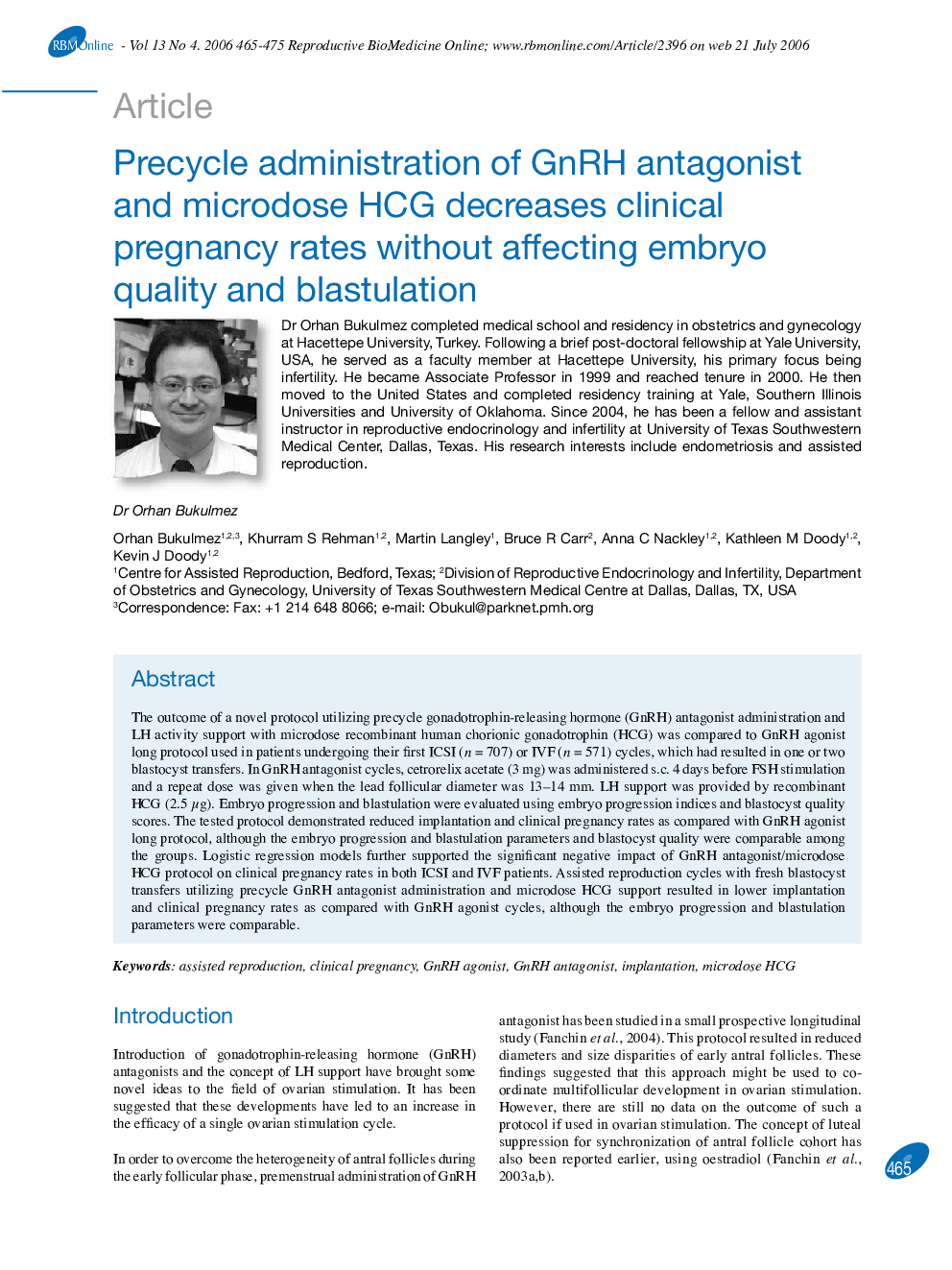| Article ID | Journal | Published Year | Pages | File Type |
|---|---|---|---|---|
| 3973432 | Reproductive BioMedicine Online | 2006 | 11 Pages |
The outcome of a novel protocol utilizing precycle gonadotrophin-releasing hormone (GnRH) antagonist administration and LH activity support with microdose recombinant human chorionic gonadotrophin (HCG) was compared to GnRH agonist long protocol used in patients undergoing their first ICSI (n = 707) or IVF (n = 571) cycles, which had resulted in one or two blastocyst transfers. In GnRH antagonist cycles, cetrorelix acetate (3 mg) was administered s.c. 4 days before FSH stimulation and a repeat dose was given when the lead follicular diameter was 13–14 mm. LH support was provided by recombinant HCG (2.5 μg). Embryo progression and blastulation were evaluated using embryo progression indices and blastocyst quality scores. The tested protocol demonstrated reduced implantation and clinical pregnancy rates as compared with GnRH agonist long protocol, although the embryo progression and blastulation parameters and blastocyst quality were comparable among the groups. Logistic regression models further supported the significant negative impact of GnRH antagonist/microdose HCG protocol on clinical pregnancy rates in both ICSI and IVF patients. Assisted reproduction cycles with fresh blastocyst transfers utilizing precycle GnRH antagonist administration and microdose HCG support resulted in lower implantation and clinical pregnancy rates as compared with GnRH agonist cycles, although the embryo progression and blastulation parameters were comparable.
